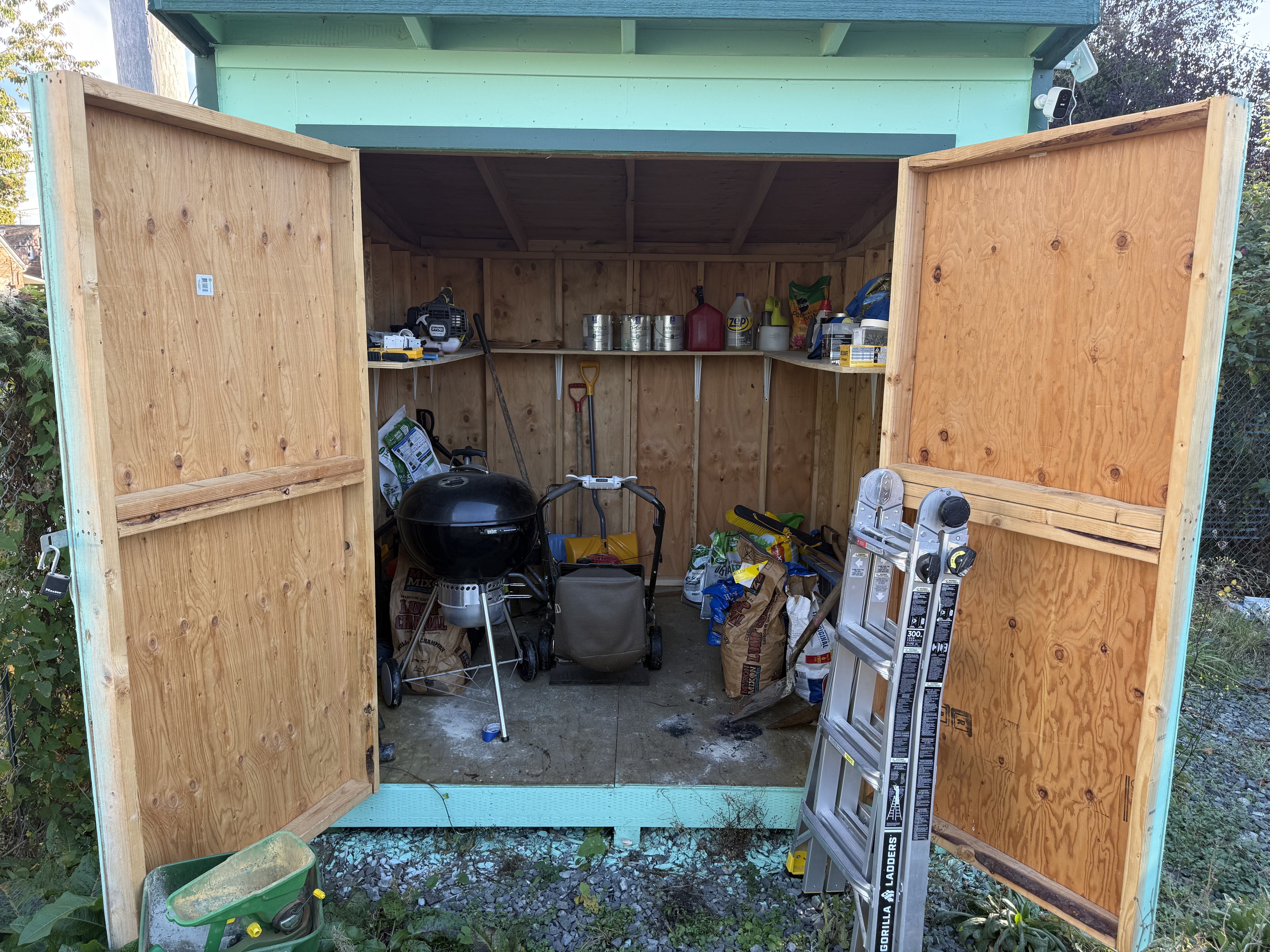Storm season ready: Keep hazardous products from making a big mess

When storm clouds roll in and the rain starts pouring, most King County residents think about sandbags, sump pumps, and keeping the dog from tracking mud across the carpet. However, another kind of storm prep often gets overlooked: securing the hazardous products stored in garages, sheds, and ground floors.
When floodwaters rise, so does the risk of paints, pesticides, and motor oil floating into places they shouldn’t like basements and storm drains.
Everyday Products, Big Risks
Our homes often double as storage sheds for a whole lineup of hazardous products, including:
- Automotive fluids: motor oil, antifreeze, gasoline, and brake fluid
- Yard and garden chemicals: weed killers, pesticides, and fertilizers
- Household cleaners: bleach, ammonia, and concentrated detergents
- Paints and solvents: oil-based paints, stains, thinners, adhesives, and wood preservatives
- Propane and fuel containers: camping fuel canisters, charcoal starter fluid, and propane tanks
Indoors, these items might feel harmless sitting in cabinets or tucked out of the way. But in a storm, spilled cleaners, leaking oil, or floating propane tanks can harm your family, first responders, pets, and our waterways.
Simple Steps Before the Storm
A little preparation goes a long way. Here’s how to stormproof your hazardous products:
- Take it out: Don’t wait for storm season to declutter. Take old, unwanted, or leftover hazardous products to a Haz Waste Collection facility or Wastemobile event near you. It’s free, safe, and keeps your home easier for storm prep.
- Move it up: Store hazardous products on high shelves, not the floor.
- Seal it tight: Make sure lids and caps are closed firmly. Leaky containers are the first to cause problems when water rises.
- Keep it original: Always keep products in their original containers with labels intact so you know exactly what’s inside if you need to move or dispose of it later.
- Bundle and bin it: Place smaller containers in sturdy plastic bins with lids to keep them contained if they tip.
- Check propane and fuel tanks: Store them upright and secure them so they won’t float away in heavy rain or high water.
After the Storm
If your hazardous products have been damaged, submerged, or spilled during flooding, don’t try to reuse them. They may be unsafe. Instead, bring them to one of the Haz Waste Program’s collection sites or Wastemobile events. Our team is ready to take them off your hands safely—and for free.
Learn more and find disposal locations at kingcountyhazwastewa.gov.
And remember: if flooding or spills happen, don’t risk your health. Call the Haz Waste Program for advice 206-296-4692, or email us at haz.waste@kingcounty.gov. In case of exposure, call the Washington Poison Center at 1-800-222-1222.
 Translate
Translate